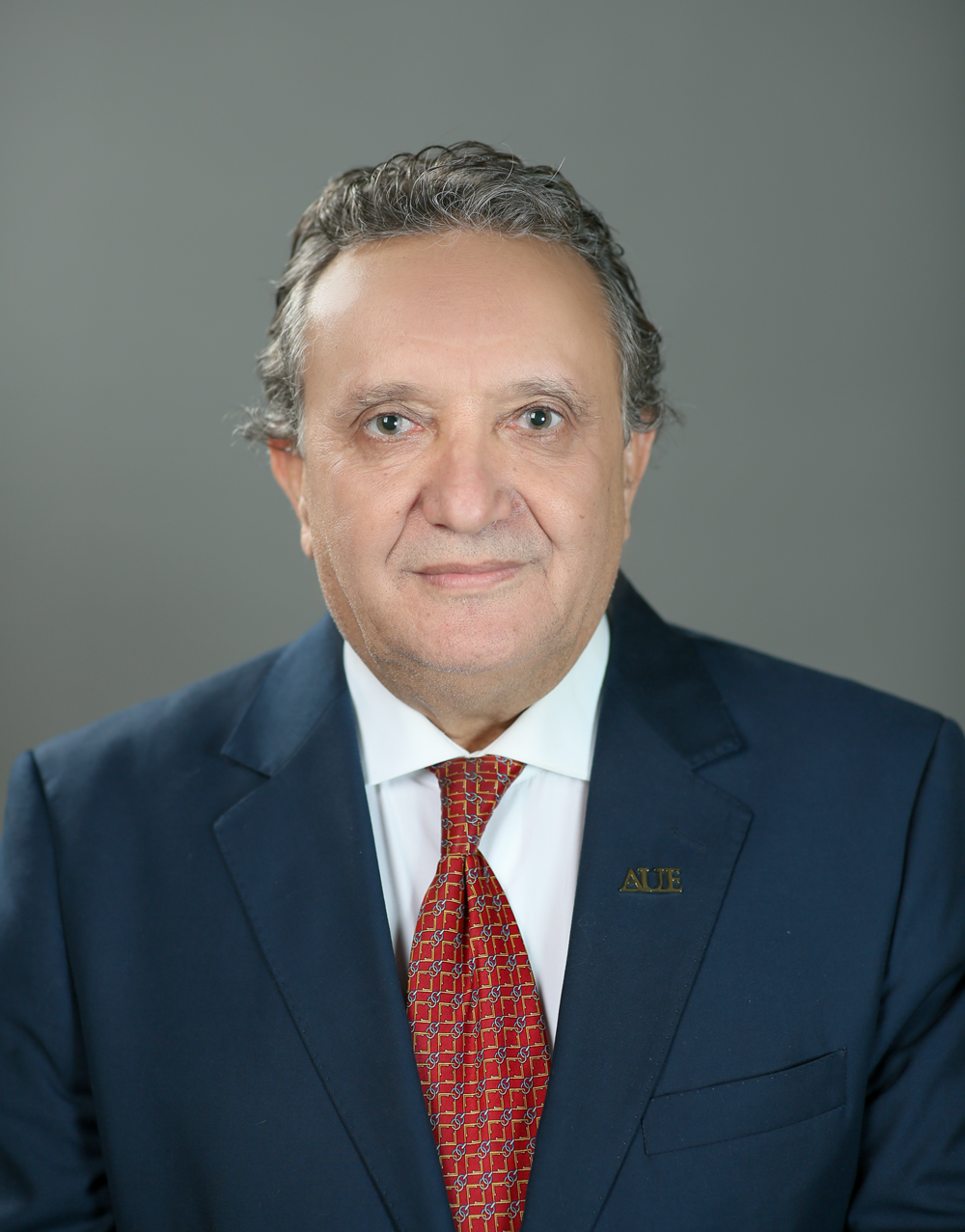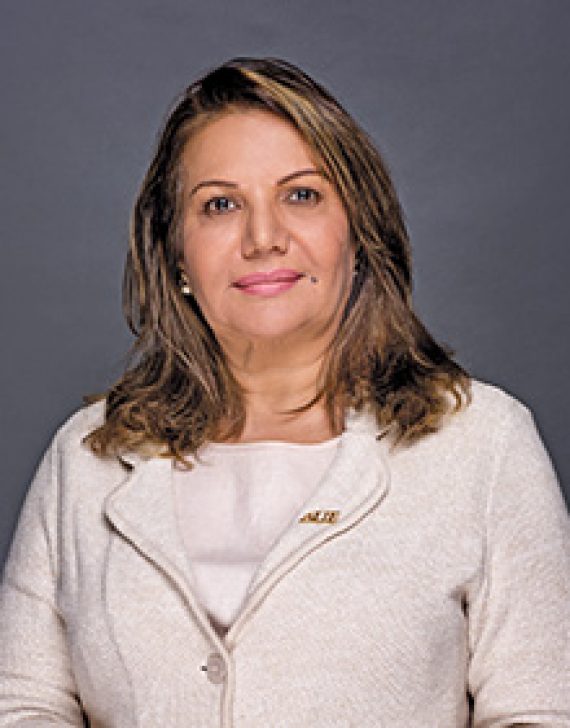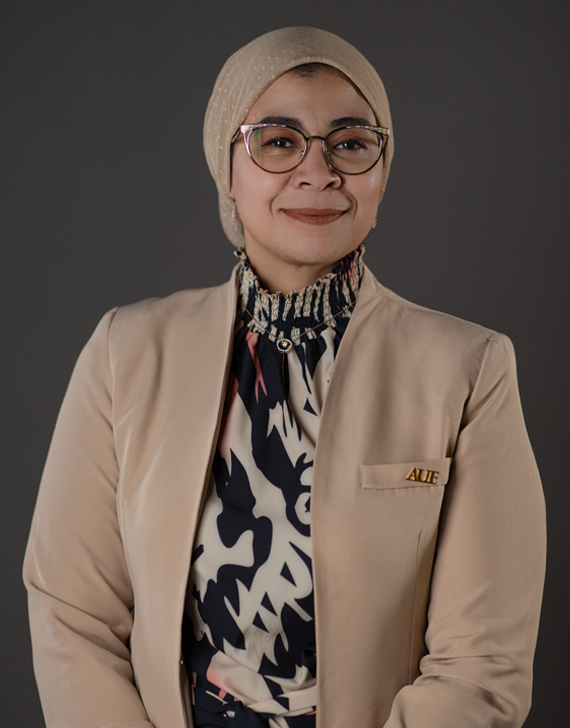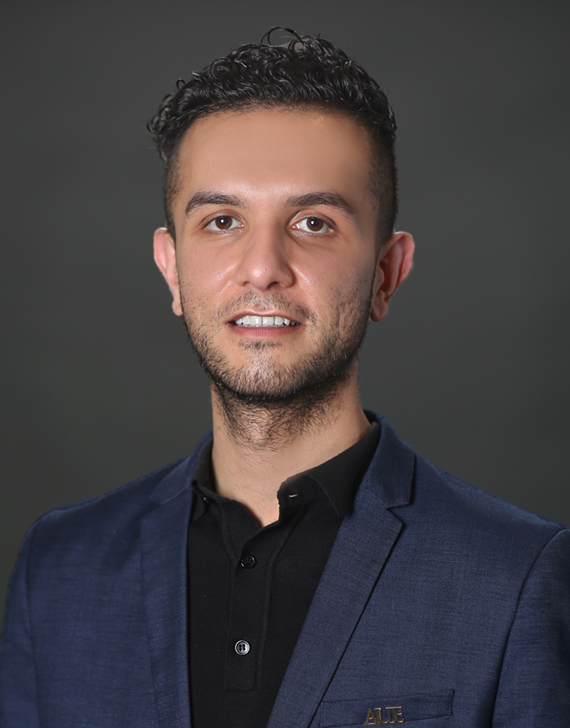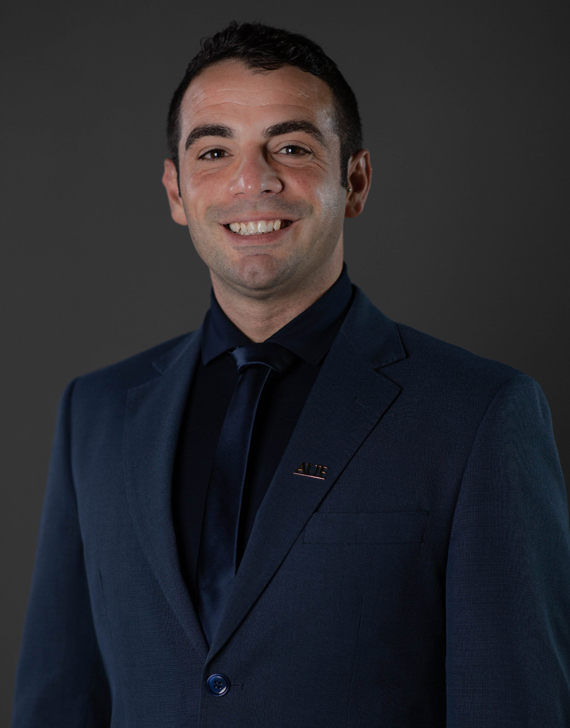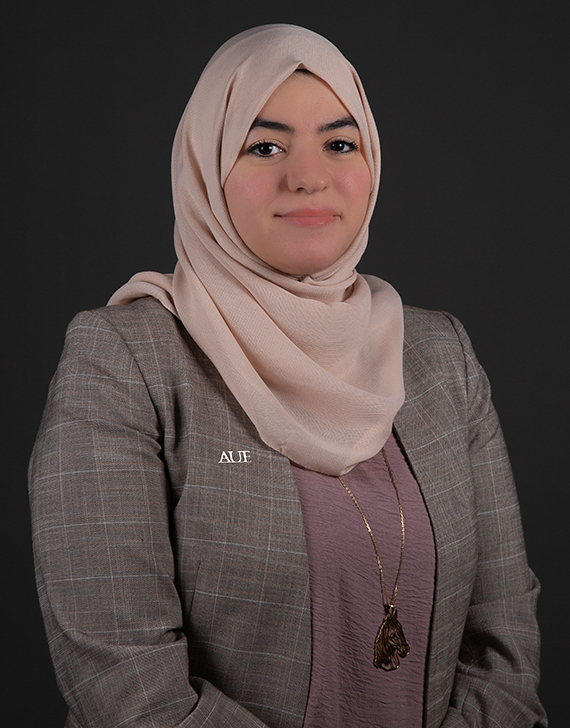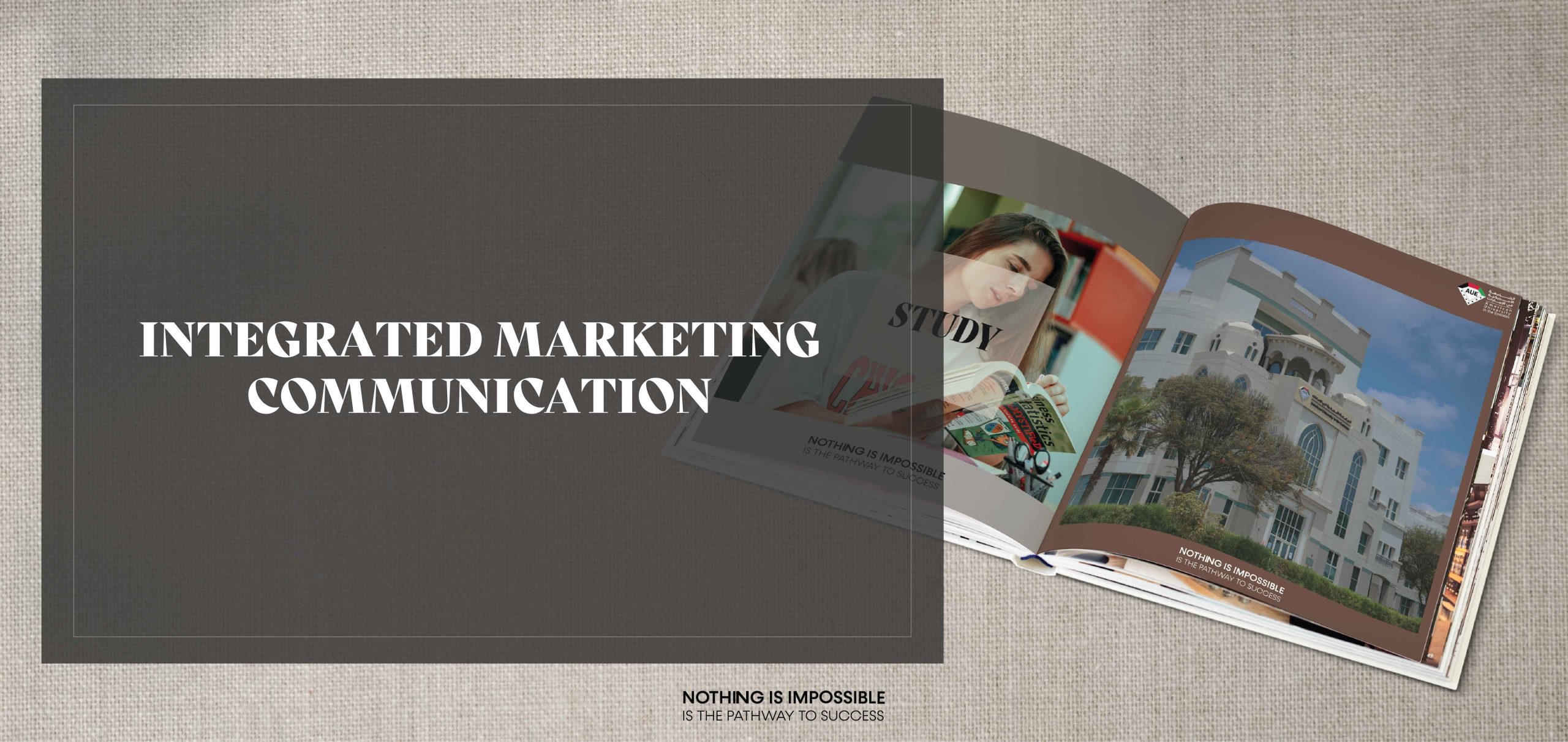
- Overview
- Specialization Structure
- Accreditations
- Faculty
- Admission
-
Duration
4 Years
-
Classes
Weekday Weekend
-
Fees
Tuition (One Semester) ……… Approx. 20,500 AED
One academic year is two semesters
Admission (One Time) ……… 3,150 AED
About Specialization
Enter the exciting world of integrated marketing communication with our Bachelor of Arts in Media & Mass Communication – Integrated Marketing Communication program. Discover the art of crafting persuasive messages, designing effective marketing campaigns, and leveraging the power of digital media platforms. Learn the fundamentals of consumer behavior, brand management, advertising and social media marketing. With a strong focus on strategic communication, this program equips you with the skills to succeed in advertising agencies, marketing departments and public relations firms. Join us and embark on a journey where you will master the invaluable art of influencing consumer behavior and shaping brand perceptions.
Bachelor of Arts in Media & Mass Communication - Program Goals
- Equip students with the skills, knowledge, and competency to be professional practitioners in the field of communication.
- Equip students with comprehensive media understanding and involve them in community events to achieve social responsibility.
- Create a platform for research development to enable students to pursue life-long learning and advanced studies in mass communications-related disciplines.
- Provide students with the current industrial standards of their disciplines to meet market demand.
Bachelor of Arts in Media & Mass Communication - Program Learning Outcomes
- Demonstrate the ability to know, evaluate and apply basic mass communication messages in the communication theories.
- Effectively communicate with others in interpersonal, small group and public speaking situation.
- Capable to use appropriate research methods to answer relevant questions.
- Demonstrate sensitivity to the ethical issues to their practice.
- Ability to apply relevant theory to communication practice.
- Apply the integrated marketing communication principles, procedures and strategies.
- Ability to think critically about the relationship between mass media ,society and between nation-states.
- Use the various techniques and skills required for effective public relations, and suggest appropriate PR action plans with the cost and time.
- Apply successfully the appropriate concepts, knowledge, skills and theories of radio and television media.
Preparatory Courses
Prior to their enrollment in the program, students applying for Bachelor of Arts in Media and Mass Communication must sit for the placement test related to the program, failure to successfully passing the placement test, they are required to enroll in the following courses:
#
1
2
Course Code
CIT 90
ENG 99
Courses
Computer Preparatory
Academic Writing (*)
Credit Hours
0
0
Exemption Condition
Passing the Placement Test
Passing the Placement Test
Program Structure
Course Category
General Education Courses
Core Courses
Specialization Courses
Free Electives
Total
Total Number of Courses
19
9
11
5
44 Courses
Total Number of Credit Hours
57
24
30
15
126 Credit Hours
- General Education Courses
- Core Courses
- Specialization Courses
- Free Electives
A: University Core Requirements
The student selects 6 credit hours (2 courses) from the list below:
B: Languages and Communication Studies
The student must select 9 credit hours (3 courses) from the list below.
Students must take all of the following courses:
Students must take one of the following Arabic Language courses:
C: The Natural sciences or Mathematics
The student must select 6 credit hours (2 courses) from the list below:
D: The Social or Behavioral Sciences
The student must select 3 credit hours (1 course) from the list below:
E: The Humanities or Arts
The student must select 3 credit hours (1 course) from the list below:
F: Islamic Studies
The student must select 3 credit hours (1 course) from the list below
G: UAE Studies
The student must select 3 credit hours (1 course) from the list below.
This course is a fully developed introduction to the fundamentals of the theories that define the communication discipline and professions. This being journalism, public relations, multimedia productions, and s. Covering the main questions and theories emphasizing the emergence of mass communication in the UAE and the Gulf States (GCC) at large.
A course designed for the student interested in developing speaking skills. Emphasis will be placed on organization, supporting material, delivery, and audience analysis. Further attention is given to the study of social relationships and the communication process.
Students will be required to apply their insight about the subject by contributing on available social mediums and platforms through intuitive course projects. The course will investigate the connection amongst media and human conduct, and will examine how corporations are capitalizing through social mediums.
This course will provide the students with a comprehensive overview of writing for the Mass Media. The students are expected to understand the basic principles of writing for the mass media.
Pre-Internship is designed for students seeking an internship. The course will prepare students to successfully plan their internship by researching and identifying potential internship opportunities, creating professional resume and letter of introduction, developing interviewing and networking skills as well as a portfolio per industry requirements. Students will go through different learning modules including experiences, team work skills, communication skills, leadership skills, problem solving, self-management and professionalism to be able to make the most of their internship.
Internship is an experience external to the University for a student in a specialized field involving a written agreement between AUE/the Training and Continuing Education Centre and MMC Firms. AUE internship course provides experience related to each student’s academic specialization and the opportunity is open to all MMC students who have completed 90 Credit Hours, and who have a GPA of at least 2.00. The internship course is an ongoing seminar between the student, the faculty member, and the workplace/ employment supervisor at the end of which, each student presents his/her project to his/her class and the MMC faculty summarizing the internship experience and how it has influenced their education and career objectives.
This course provides the students with the basic knowledge base of public opinion and propaganda. Covering the discourse of Public knowledge, public policies and diplomacy. The main skills attained will enclose negotiation, critical analysis and knowledge in the public domain. Principally, the major components are the political and social aspect of public opinion and propaganda.
This course examines the role of the mass media in modern society and the influence of media institutions and messages on individuals, communities, and society. The course includes an overview of the basic methods associated with media research. Students will be asked to integrate theoretical knowledge into media research areas relevant to communication professionals today.
The Media Law and Ethics is a course which teaches the ethical and judicial issues in mass communication. Regulations concerning advertising, PR and journalism including the social media are also topical in this course. Issues such as censorship, libel, personal privacy, ownership of information will be leaned in a basic sense.
This course exposes students to a survey of the principles and practices of advertising. It examines the advertising industry from the client’s perspective, to the professionals who craft ad messages, to the salient effects of advertising on the society. Topics include advertising ethics, advertising research, media strategies, global advertising, communication and social change.
Brand and Campaign Management is a course that provides students with a solid knowledge of the culturally responsive advertising process, how to develop and implement a culturally responsive advertising campaign for a product or service, with an emphasis on the situation analysis, market research, target audience, marketing, advertising strategies and message creation for traditional and new media. Students will learn to conduct a full culturally responsive campaign in practice.
This course examines the intersection of the mass media and marketing across international and cultural divides. Anchored on the [cultural] theories of globalization, i.e., heterogeneity, hybridization, and homogenization, the course focuses on how the contemporary media shape, and mediate, emerging techniques that marketing employs to present products and services in other economic terrains. The course also explores how, through the media, the local culture influences marketing narratives, on concepts, such as promotion, price, place, products, etc., across the globe.
This course seeks to present an introduction to the practiced consumer experiences and their importance by focusing on the understanding of the theoretical and methodical approaches and the psychological processes that affect consumer experience—applying knowledge from areas of psychology, sociology, anthropology, and culture. This course explains how and why people make purchases, the external and the internal factors such as motivation, perception, and involvement that influence consumer’s decisions.
Digital Storytelling is a course that focuses on examining both traditional and new media. This includes oral storytelling, literature, museum exhibits, poetry, visual arts, architecture, hypertext fiction, Net Art, and finally, computer games. The students explore and develop their sense of visual narrative through key theories of visual narrative and look at a broad range of examples from within the integrated strategic communications to help consider how images and spaces can tell stories with or without accompanying words. Narrative perspectives of the maker, the audience, and visual form itself will be examined to design campaigns and promotional materials for changing attitudes and behaviors, as well as to promote products, ideas, and services for marketing.
This course gives a precise prologue to digital media management by concentrating on the focused technique and operations of media enterprises. The course prepares the students for leadership and management roles and additionally entrepreneurial exercises in interactive and digital communications. Particular consideration is given to the creation and management of competitive advantage, media division, and the management of advancement. Ideologies are applied to exercise through the use of real-world case studies.
The course Strategic Copywriting introduces students to creative theory and practices through the art of writing persuasively. Students will learn the craft of copywriting for digital media, branding, advertising, direct marketing, social marketing, print, broadcast, and internal communication that build up to a complete integrated marketing campaign.
This course seeks to equip students with an understanding of vital media arrangements in the general setting of advertisement and marketing. The course will navigate multiple areas such as audience and market research, selection, evaluation, and planning of all advertising media. It will also consider different choices and issues that emerge in the media arranging process.
Marketing and Planning Research is a course focusing on the theoretical foundations and strategic understanding of marketing communication and its impact on relationships with consumers and brands. Students will learn how to analyze and synthesize solutions, implement research methods, procedures, and processes. The course covers a) research design, b) data collection and analysis, c) evaluation of research findings, and finally, d) performance of marketing functions.
The pre-capstone course is designed to prepare the students to the pre-production planning and processes for integrated marketing communication projects and campaigns. The students will follow certain steps in the production process while identifying and presenting their idea, concept and methodology. The students will have comprehensive knowledge about writing the capstone proposals, reports, presentations and designing the ideas for the different IMC campaigns.
Media and Mass Communication students are required to complete a three-credit hour course on the Capstone Graduation Project. To be graduated, students are requested to demonstrate that they have developed capability and proficiency in the core knowledge of their specialization and can show capability in learning aptitudes in the four specializations. It will be a challenging and thorough adventure however the reward for undertaking a significant experience are enormous and will without a doubt give AUE graduates a capable begin in vocation they may pick. Moreover, English dialect and innovation capability should likewise be illustrated. The Capstone Graduation Projects ought to be as field-based. The Capstone Graduation Project is intended to give students a helpful working comprehension of the requirements and desires expected to move on from AUE.
Choose 15 credit hours from any other college/specialization with the condition that all the prerequisites of the chosen courses are met.
Recommended Study Plan
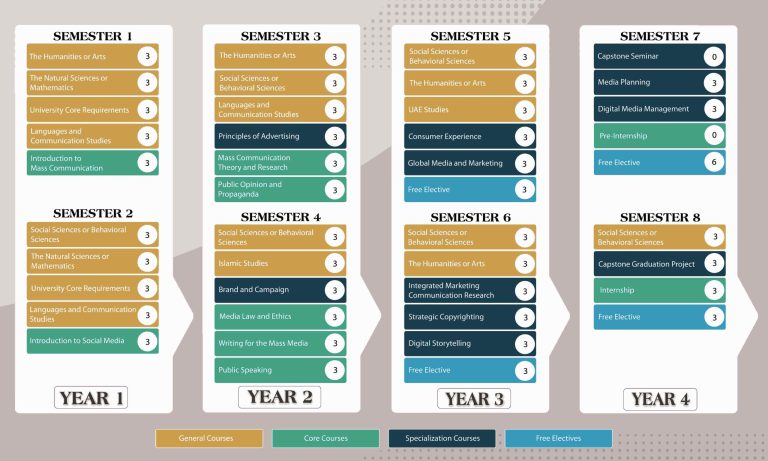
Accreditations
The American University in the Emirates is licensed by the UAE Ministry of Education – Commission for Academic Accreditation | caa.ae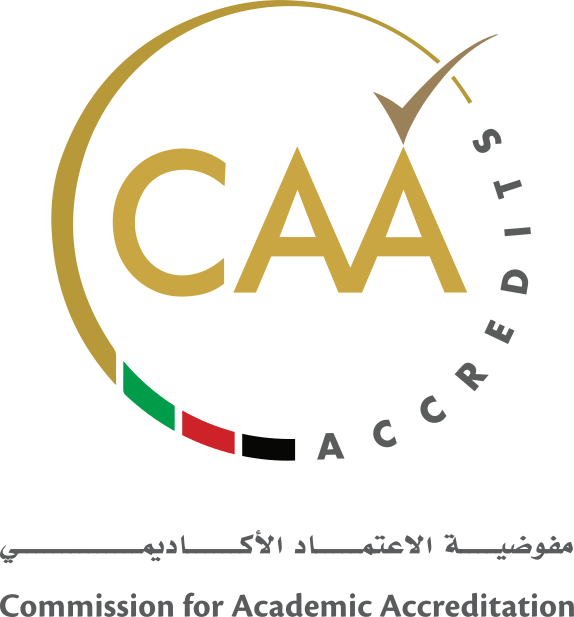
- For Admission Requirements for Freshman students (those who have just completed high school and have never attended an Institute of Higher Education before) click here
- For Admission Requirements for Transfer students (those who have studied at another higher education institution and would like to transfer their credits to AUE) click here
- For Admission Requirements for Visiting students (those who are currently enrolled in a different higher education institution and would like to take some courses at AUE as part of the study plan of their home university/college) click here
Joining the Program
- Fall Semester
-
September
-
Spring Semester
- January
- Summer Semester
- May
